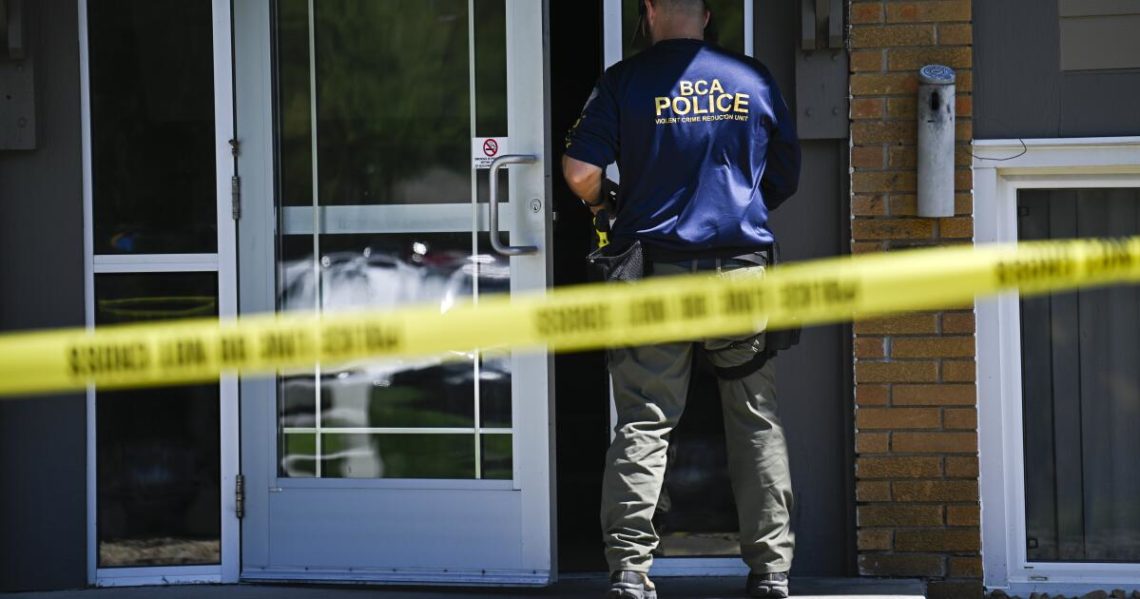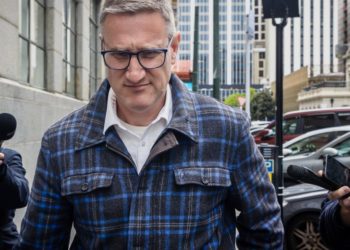There is much we still don’t know about Wednesday’s deadly attacks in Minneapolis, but after sifting through videos and other evidence left behind, researchers at the ADL Center on Extremism suggest the shooter held a “deep fascination with mass killers,” and had “detailed struggles with mental health and suicidal ideations.”
It is easy to become desensitized to the all-to-frequent stories of mass shootings where the perpetrator then ends their own life. After last month’s Midtown Manhattan tower shooting, in which four people were killed including an off-duty NYPD officer working security, several newspapers suggested that eliminating such threats even at fortified buildings can be “nearly impossible.” But simple legal changes at the state or federal level could have made it harder for people like the Manhattan shooter, Shane Tamura, to obtain a firearm.
Under federal and most state laws, people who are involuntarily committed by a judicial order that deems them a likely danger to themselves or others are prohibited from purchasing or possessing firearms for a period of time. Even so, many states have created “emergency hold” procedures through which individuals assessed to pose a public safety risk can be involuntarily held for up to 72 hours without a judicial order. Before July’s Manhattan shooting, Tamura had twice been subjected to such an emergency hold in Nevada because a health professional deemed him to be sufficiently dangerous.
However, Tamura was not legally prohibited from purchasing a weapon despite these previous psychiatric holds, because in Nevada emergency holds do not trigger a loss of gun rights. That is not the case in a handful of other states. For example, in California, anyone who’s committed on an emergency hold basis is prohibited from purchasing or possessing firearms for five years. Washington suspends gun rights for six months after an emergency hold. In these states, the names of those placed on holds are also entered into the FBI background checklist, and those individuals are blocked from buying guns during the period of prohibition.
These restrictions on mental health patients’ gun rights rationally balance the public’s interest in safety with the individual’s interest in liberty. First, the restrictions are temporary, lasting no more than five years. Second, the prohibitions are merely presumptive. Any affected individual is free under state law to petition for their gun rights to be restored if they can prove they are not a risk.
While most people subjected to emergency holds do not go on to commit violent acts, there is evidence that this group does pose an elevated risk of violence. In analyzing more than 75,000 Floridians with severe mental health issues for a 2020 article in the Journal of the American Academy of Psychiatry and the Law, Jeffrey Swanson and his coauthors found that those who had been subject to an emergency hold had a small but significantly higher likelihood of future arrest for violent and gun-involved crimes relative to those who had not been subject to such a hold.
A common-sense approach to reduce mass shootings is for Nevada and other states to follow California’s lead and prohibit people who have been subject to emergency holds from purchasing or possessing firearms for at least one year. Indeed, since the Manhattan shooting shows how easily guns can be transported from states with lax gun laws to stricter states, like New York, Congress should amend federal law to temporarily suspend such people from bearing arms and, crucially, put their names on the FBI background checklist. The goal is prevention, not punishment, so the penalty on firearm possession should be limited to a civil fine. There are already far too many people with mental illnesses in jails and prisons.
Of course, putting people’s names on the FBI background check list won’t stop them from buying a gun if they can make the purchase while skipping the background check altogether. Gun dealers wouldn’t have been required to check the Manhattan shooter’s history, because under federal law, many states’ concealed-carry permits — including Nevada’s — empower permittees to purchase guns for five years without a federal background check. The Manhattan shooting illustrates why this five-year loophole should be immediately closed. The fact that someone passed a background check to receive their concealed-carry permit four years ago does not necessarily make them safe to purchase a firearm today.
Emergency holds are an obvious risk signal, but lawmakers should also consider other pauses on gun rights that could be activated by mental-health treatment. In the Manhattan case, press reports indicate that police found antipsychotic drugs at the shooter’s home. When a person has been prescribed serious antipsychotic medications such as Thorazine (chlorpromazine) to treat psychosis, there is an elevated risk that they will commit a violent act — especially if they stop taking their medication.
The Violence Project’s analysis found that 24% of mass shooters had previously taken psychiatric medication. Again, to be clear: The vast majority of people prescribed antipsychotic drugs do not commit violent crimes. But it is still reasonable to create a temporary, reviewable pause of gun rights tied to active treatment with specified antipsychotics. To protect liberty and avoid stigma, the pause should be (1) time-limited, (2) rebuttable through a rapid petition or possibly through a physician’s attestation that the individual is not dangerous, and (3) privacy-respecting, relying on minimal, purpose-built reporting (or voluntary certificates) rather than broad disclosures of medical records.
Pauses contingent on prescribed medication create the risk that some people in need of psychiatric treatment would choose not to seek it out in order to preserve their access to guns. The aviation industry gives us reason to take this possibility seriously, as the New York Times recently reported that many commercial pilots, faced with the threat of losing their stringent FAA clearance to fly, choose to hide their mental illnesses rather than receive a formal diagnosis. However, the potential chilling effect of tying gun rights to antipsychotics should argue for robust safeguards — not paralysis. We already pause the ability to drive or operate heavy machinery for far less.
A brief, petitionable pause after emergency holds and during high-risk treatment better aligns the law with clinical reality and public safety. Congress and the states should act: add emergency holds to the background-check disqualifiers, close the concealed-permit loophole, and adopt treatment-contingent, due-process-protected pauses. These targeted reforms might not have prevented Wednesday’s tragedy in Minneapolis — but taking action to disarm the dangerous is our best chance to save lives.
Ian Ayres is a professor of law and public health at Yale University and a co-author of “Weapon of Choice: Fighting Gun Violence While Respecting Gun Rights.”
The post Contributor: Why psychiatric holds don’t stop people from buying guns appeared first on Los Angeles Times.




